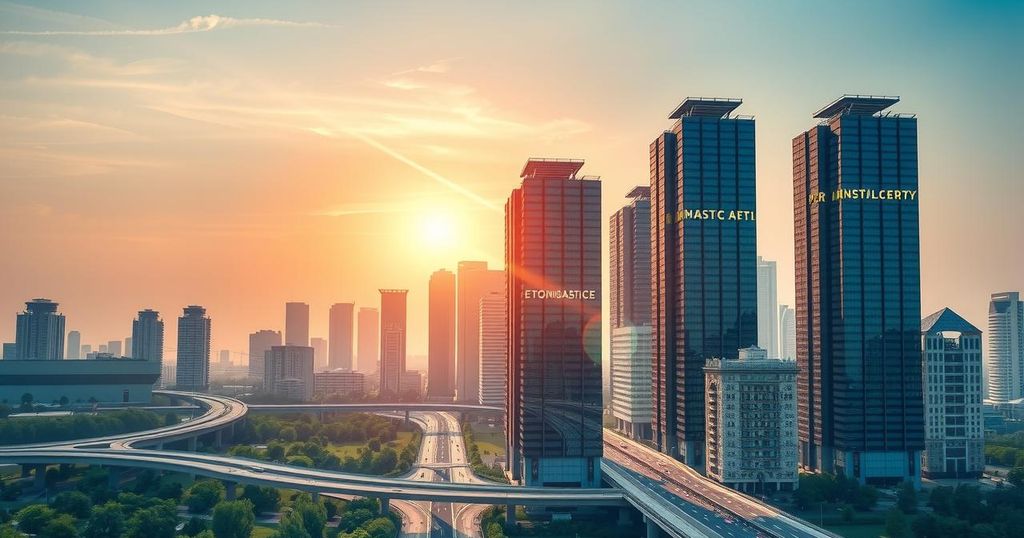Nigerian President Bola Tinubu claims that the country is moving towards an end to its economic crisis, with hopes of improvement following significant reforms. Despite recent economic growth and a reduction in inflation rates, many Nigerians face substantial hardships, particularly regarding cost of living and rent increases. The government continues to focus on stability and domestic production as a path forward.
On Friday, President Bola Tinubu of Nigeria highlighted the country is nearing a resolution to its prolonged economic crisis, describing the situation as one where “light at the end of the tunnel” is visible. This acknowledgment comes as Nigeria undergoes a second consecutive year of escalating living costs, largely influenced by inflation following the removal of a fuel subsidy and the liberalization of the naira’s exchange rate, actions taken shortly after Tinubu’s election in 2023.
While the government and international bodies like the International Monetary Fund advocate for these reforms, millions of Nigerians continue to endure the harshest economic difficulties in decades. President Tinubu stated, “The past year tested our resolve but through economic discipline and strategic reform, we achieved what many deemed impossible,” during the signing of the 55.99 trillion naira ($37 billion) national budget for the year.
Recent data indicates that Nigeria’s economy experienced a growth of 3.8 percent in the last quarter of 2024, marking the strongest performance in three years. Tinubu attributed this growth to various reform measures, including enhanced foreign exchange policies, an increase in the minimum wage, and a rise in government revenues projected to reach 21.6 trillion naira in 2024.
As President Tinubu approaches the midpoint of his term, analysts have expressed a cautious sense of optimism following the release of GDP figures that suggest price stability is gradually returning. When presenting his budget last December, which was initially estimated at 47.90 trillion naira, he emphasized the importance of restoring macroeconomic stability and improving security as fundamental components of upcoming government expenditures.
The central and northern regions of Nigeria have faced challenges related to a jihadist insurgency for 15 years, compounded by emerging criminal gangs associated with Boko Haram and ISWAP. The administration anticipates an enhanced economic performance in 2025, which relies on decreased petroleum imports and increased domestic refinery production.
In January, the government revised its inflation rate, bringing it down to 24.48 percent from December’s high of 34.80 percent. However, many citizens continue to struggle economically, especially with rent increases in urban areas like Lagos, where spikes of 100 to 200 percent have been reported, causing financial strain as salaries have not kept pace with inflation.
In summary, President Bola Tinubu has expressed optimism regarding Nigeria’s economic recovery, citing recent growth and strategic reforms. Despite improvements noted in economic indicators, many citizens continue to face significant financial challenges. The government’s focus on macroeconomic stability, security enhancement, and increased domestic production may serve as crucial steps in navigating the ongoing economic difficulties. The reduction in inflation figures offers a glimmer of hope, although drastic rent increases continue to burden the population.
Original Source: www.france24.com






